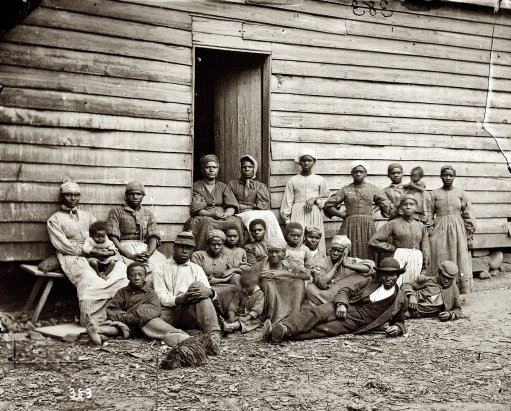
Leonardo da Vinci Head of a Woman 1470s
This is turning into a very rewarding series, it opens up vistas I could never have dreamed of. First, in “Not Nearly Enough Growth To Keep Growing”, I posited that peak wealth for the west, and America in particular, was sometime in the early ’70s or late ’60s of the last century.
That led to longtime Automatic Earth reader Ken Latta, who’s old enough to have been alive to see it all, writing, in “When Was America’s Peak Wealth?”, that in his view peak wealth for America was earlier, more like late ’50s to early ’60s, a carefree period for which Detroit provided the design, and the Beach Boys the soundtrack.
And I know, for those who wrote to me about this, that there’s quite a bit of myopia involved in focusing on the US, or even the western world in general, when discussing these things. But at the same time, we’re all at our best when talking about our own experiences, something this thread has made abundantly clear. That said, I would absolutely love to get a view from other parts of the world, China, Latin America, Africa, Eastern Bloc, on the same topic. I just haven’t received any yet.
What I’ve absolutely adored is how -previously- anonymous Automatic Earth readers and commenters have felt the urge to share their life experiences because of what’s been written. This happened especially after Ken’s follow-up to his initial article, “Peak American Wealth – Revisited”, which saw many of his contemporaries, as well as younger readers after I ‘poked’ them, relate their views.
Then there was distinguished emeritus professor Charles A. Hall, who took offense with neither Ken nor I including energy as an explicit factor in determining wealth. Of course he was right. I have the creeping suspicion he often is. So Charlie wrote “Peak Wealth and Peak Energy”. Which not only set us straight, it also generated a -privately- emailed response from Belgian scientists- also Automatic Earth readers- about work he has earlier published on EROI of for instance Spanish solar PV (2.45:1? That must hurt!). As of this morning, it looks as if this may lead to further cooperation. What’s not to love?
And then all this has fired up Ken Latta to write yet another article, this time on ‘freely available’ energy before the age of oil -and after it!-, in the form of human slavery. In all of its forms and shapes, including wage slavery. Is it a coincidence that at the end of the age of oil, America’s -former- middle class appears to be descending -once more- into wage and debt slavery? Or is something entirely else – and darker- going on, as Ken seems to suggest below: The currently observable rapid decline in demand for wage slaves just happens to coincide with global peak energy.
Here once more is Ken Latta:

Ken Latta: Responses to the recent Charles Hall posting at the Automatic Earth, “Peak Wealth and Peak Energy”, parried with the idea that slaves were the original black gold that allowed society to build great wealth. Not only is that a fair statement, but what the finest historians tell us is that it was always thus. It seems that whenever a cluster of mud huts went up, taking slaves was soon placed on the to-do list.
When uncoerced human power is the highest EROEI source available, usually not much gets done beyond procuring food and making basic necessities. For such societies, peak wealth occurs when a herd of grazing animals happens by. The first rule of civilization building is: find a bunch of people you can force to do things they wouldn’t otherwise be inclined to do.
In antebellum America (USA that is) there were three kinds of coerced laborers. Chattel slaves (held as real property) were the abducted Africans that made the plantation economy of the southern states possible. Something that was not well known was the practice of our colonial masters trading guns, powder and lead to the “Indians” to purchase captive natives for slave labor. They proved to be unwilling workers and frequently escaped back to their tribes.
Indentured servants were not property. Their coerced labor was legally imposed to work off a debt. Many of our ancestors got to the US by contracting to work for someone that would pay their fare. The main difference from chattel was that upon settlement of the debt they were free to leave.
That brings us to the thing known to wags in recent times as wage slavery. Us wrinklies may remember a bumper sticker [I can’t be fired, slaves must be sold]. Wage slaves are free to come and go and quit any time. They may also be fired. When they are trying not to be fired and not ready to quit, they must pretty much do as they are told and thus coerced labor. There could be a fourth class, in that some people refer to entrepreneurial souls as the self-exploited.
Once the infrastructure to fully exploit fossil fuels was in place, the most repugnant forms of forced servitude fell out of favor. The president known as Old Hickory outlawed chattel slavery. Not necessarily because he so loved his African constituents, who were politically considered to be two-thirds of a person, but in hopes they would do what they could to hinder the Confederate war effort.
The newly self-owned citizens often ended up doing much the same work as before except as either indentured or wage slaves. Most wage slaves have progressively gotten less back breaking work to do, though not necessarily less monotonous. Some have gotten to do quite exciting and satisfying work.
They also worked up to the point of having some effective leverage in dealing with their would-be slave masters.

James Gibson Group of contrabands [runaway slaves] at Foller’s house, Cumberland Landing, Virginia 1862
Wage slavery is categorically different in that its prevalence correlates with non animate sources of energy. Wage slaves have served as overseers of the energy slave economy according to the instructions of the bosses. Sadly, what this implies is that as fossil energy production declines, the demand for wage slaves also declines. We are observing it happening. The stagnation of wage earnings began at the time US oil production peaked. The currently observable rapid decline in demand for wage slaves just happens to coincide with global peak energy.
The actual rate of energy decline is accelerated by the associated trend of impoverishment of wage slaves and the growing pool of would-be wage slaves. And thus we will get to see the effect of Ugo Bardi’s Seneca Cliff. Named for 1st century Roman citizen Lucius Annaeus Seneca and based on this quotation:
“It would be some consolation for the feebleness of our selves and our works if all things should perish as slowly as they come into being; but as it is, increases are of sluggish growth, but the way to ruin is rapid.”
– Lucius Anneaus Seneca, Letters to Lucilius, n. 91
Demand for energy is falling faster than production, causing even the mightiest producers to teeter on the edge of insolvency. The prediction a few years ago by petroleum geologist Jean Laherrere that the Bakken fields would be played out around 2020 appears to be on target.
The great NY Yankees catcher Yogi Berra is said to have quipped that “predictions are hard, especially about the future.” I agree, but sometimes you just have to throw caution to the wind.
Ugo Bardi, an estimable professor, and a whole pack of fellow academics joined by the usual crowd of entrepreneurial hustlers are pushing a pipe filled to the brim with Hopium that ruination can be avoided or mitigated by works worthy of a sorcerers apprentice.
We just have to assemble a vast armada of solar panels and wind turbines, plus a few billion tons of rechargeable batteries and turn every suitable topographic feature of the landscape into pumped storage, et voila!, energy slaves forever.
An admirable dream, but I’m gonna let that bandwagon go on down the street without me. I share the opinion that boat sailed for NeverneverLand quite a long time ago. What already exists and whatever still gets built will keep some lights on for awhile, but preservation of industrial civilization seems to me unattainable.
There must be a consequence right? Yes, I think there is and nobody is gonna like what I think it will be. At some threshold level of wage slave unwagedness the perfumed princes of the shrunken “protected class” (pace Peggy Noonan) will regretfully determine that a return to indentured servitude is necessary for the maintenance of moral fabric (and the preservation of their class). Rumor has it, this is already emerging as a feature of the injustice system. The next obvious step would be press gangs grabbing people off the streets and in their homes (hovels?) to sell at auction or gift to a powerful enemy, etc.
Sounds too far fetched? It is approximately what happened in Nazi Germany. The unemployed were rounded up and forced to work on public works projects. Jews weren’t just sent to camps to be gassed, they also went to camps next to industrial facilities to work as slaves to sustain the German economy and war effort. Even Auschwitz was a slave labor camp. Famous sign over the main gate says “Arbeit Macht Frei” (work makes free). If it isn’t already happening, something similar seems likely to emerge in the Nazi glorifying madhouse called Ukraine.
This was difficult to write. It can’t have been easy to read. But, to paraphrase one of recent history’s real shitheads, we must live the dark ages with the human species we have, not the one we might wish we had.
There is an ageless quip about not shooting the messenger, but who else ya gonna shoot when he’s the only one standing there.
Let the 10 minutes hate begin.









Home › Forums › Go Long Chain Makers